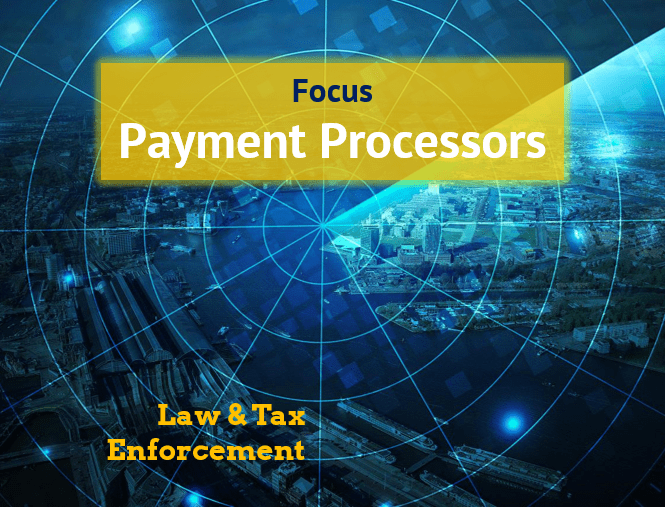FinTelegram is frequently contacted by law enforcement agencies in various jurisdictions with requests for information. It has become known in the international law enforcement scene that FinTelegram has indeed valuable information and contacts. In our respective discussions, we recommend starting enforcement actions against facilitating payment processors. They are the backbone and payment data hubs of the ever-expanding cybercrime universe and its scams. Simply follow the money, expose perpetrators, and money-laundering!
Types of payment processors
There are basically three types of payment processors – FinTechs, PayTechs, or Payment Services Providers – which are heavily engaged in the area of high-risk and/or illicit business with their payment services:
- unregulated PayTechs integrating different payment processors into their cashier technologies for their clients. Cyprus is a hub for this type of payment processor.
- partially regulated PayTechs that have a Crypto license issued by the FIU in Estonia, for example, and actually use this license to process FIAT money for their clients via crypto.
- regulated FinTechs that preferably work with licenses from the UK FCA or the Bank of Lithuania within the EU or EEA.
From the analysis of payment documents from victims and/or information from whistleblowers it can be concluded that the participants in the payment processor scene cooperate intensively with each other. Most unregulated or partially regulated payment processors have account connections with their regulated partners.
Role Model GlobalNetint
A promising role model for law and tax enforcement agencies in the field of regulated payment processors is the Lithuanian GlobalNetint (GNI) which is an e-money institute licensed by the Bank of Lithuania and belongs to the Israeli MoneyNetint Group around Raphael Golan and the Trif Family.
Read more about the MoneyNetint group here
We have received the customer list of GNI from whistleblowers a few weeks ago. The 2019 GNI client list contains more than 430 clients. Of these,
- 80 GNI customers are directly related to the Forex & CFD Broker segment,
- almost 60 GNI customers are crypto companies, some of which act as payment processors for Forex & CFD scams and
- another 70 GNI customers are listed as marketing companies. We know some of these companies in connection with Forex & CFD Broker Scams.
- Almost 40 clients are connected with the financial services sector (e.g. MoneyNetint, The Sacramento Bee, etc.), which are also known as payment processors for high-risk segments and scams.
It is safe to assume that the overwhelming part of GNI‘s payment transaction volume comes from clients (merchants) that operate or support scams. In our first analysis, we discovered in the 2019 client list that many companies connected to scams against various jurisdictions’ regulators had issued investor warnings.
Highly effective enforcement actions
Through companies like GlobalNetint, law and tax enforcement agencies could easily access the data of hundreds of scammers in various jurisdictions and expose illegal money movements, aka money laundering activities. Hence our consistent recommendation to the various enforcement teams to take on these regulated and unregulated FinTechs and PayTechs.
Regulatory issues with PayTechs
In this context, we have recently addressed the problem of unregulated PayTechs (see FinTelegram article here). It is incomprehensible why regulators do not take measures to regulate unregulated PayTechs in the sense of the AML directives, as was the case with Praxis Cashier. This would be an essential step in the fight against scams and cybercrime.
